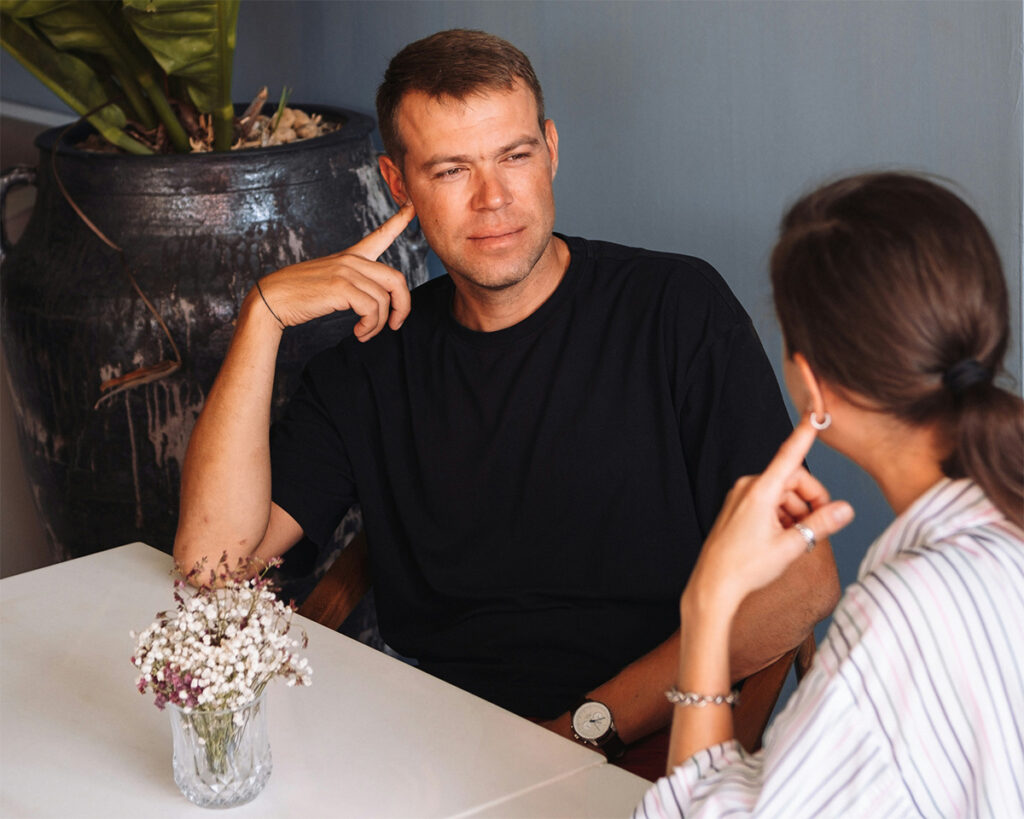One of the wonderful side effects of a nice dinner with a loved one or an intimate conversation or time spent together on a beach watching a glorious sunset (the list of delightful examples goes on and on!) is the deep sense of peace that follows. You may notice it as a calm and peaceful feeling, almost giddy happiness or even an especially good night’s sleep. The foundation for all of these experiences is a good, healthy relationship with the one you’re spending time with.

On the flip side, the side effects of a negative experience, anything from a heated argument to someone making unreasonable demands of you, can be extremely stressful. Stomach pain. A restless night’s sleep. The urge to simply let it out and cry. A common thread to all of these reactions to a negative experience is that they are physical. This points to the fact that unhealthy relationships can actually harm your long-term health.
The connection between an unhealthy relationship and health problems is well researched. Kelly Bilodeau, writing for Harvard Health Publishing, points to a fairly recent study, writing “A study published March 2, 2021, in the Journal of the American Heart Association, for example, found that women who reported having high levels of social strain were more likely to have a heart attack or die of cardiovascular disease during nearly 15 years of follow-up than women who did not.”
There are bumps in the road for every relationship, of course, especially with long-term connections. To probably no one’s surprise, there is also no objective way to evaluate the quality or health of a relationship. There are, however, subjective signs that you can be attune to. Bilodeau says it’s wise to watch for these warning signs:
- “Feeling burned out or depleted after interactions”
- “Having negative thoughts about the relationship”
- “Feeling like the relationship is imbalanced — that one person gives or takes more than the other”
- “Feeling that you are not valued or respected by the other person.”
Do any of those hit home? If the relationship is worth saving, whether it’s with a romantic partner, friend or colleague, there are steps you can take to reduce the stress. This is equally important if the relationship is with a close family member with whom it would be very difficult to simply cut ties. Bilodeau includes some proactive steps you can take to rebalance a negative relationship.
“Establish boundaries.” If you feel a little (or a lot) drained every time you interact with someone, it may be they expect too much out of you. They expect you to listen to every detail of every problem they encounter. It’s too much. It’s time to set boundaries — and that may involve something as straightforward as you taking control of the situation. When they call with a problem, offer to help — at a time of your choosing, with a set time limit on the visit if need be.
“Prioritize your own well-being.” You can’t be a good partner, friend or relative if you’re burned out. You may have the best of intentions but if people are taking too much from you, then you need to slow down. Take time for your own physical and mental health and you’ll be able to better maintain healthy relationships. That includes making time for exercise, the proper amount of sleep and mindfulness techniques such as meditation.
“Achieve some distance.” With friends and relatives outside of your immediate family, it may be time to reduce the time you interact with them. Devote your time to the relationships you cherish most.
“Open the lines of communication.” One sign of a healthy relationship is the ability to communicate openly. It’s okay to disagree with a friend or have a differing opinion. If the friendship can’t survive an honest discussion about the disagreement… then that’s a sign that it may be time to reevaluate your commitment to cultivating it.
Time is finite. That means it’s necessary to make a conscious effort to devote time and energy to the relationships you value most. It’s the best way to keep them healthy — and maintain your own mental and physical health.